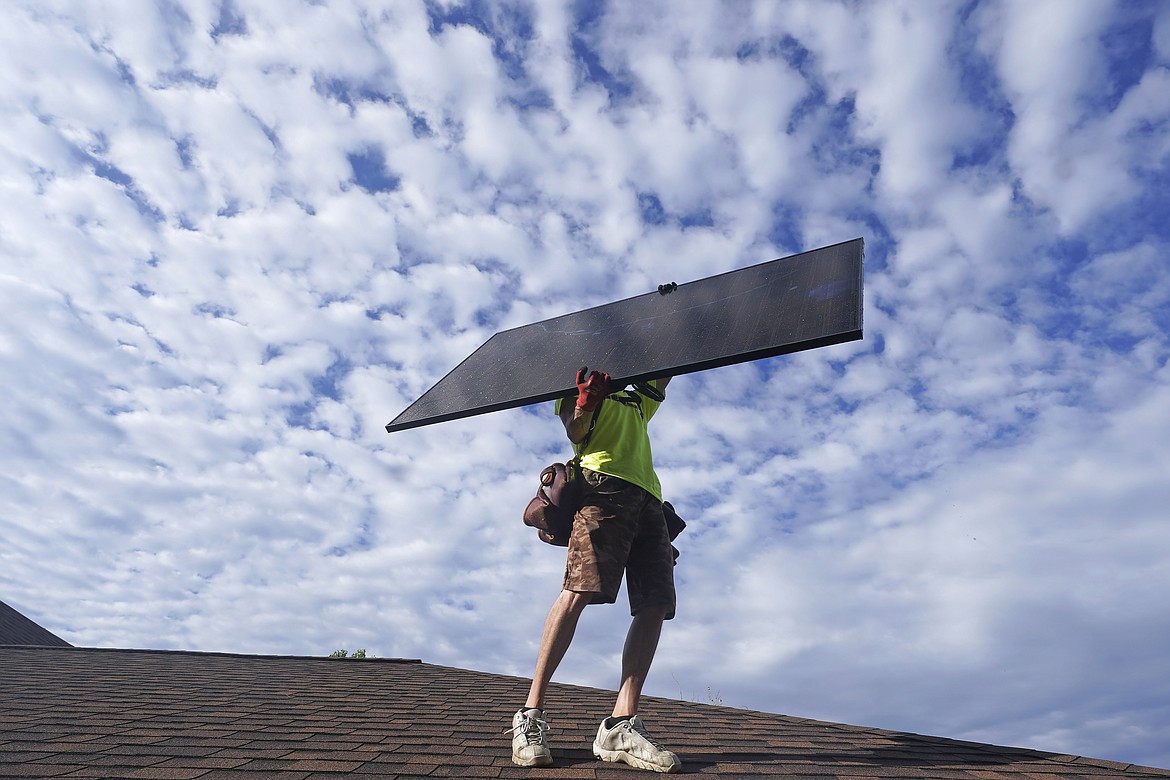Fossil fuel’s negative impacts far greater than solar, wind
In the Aug. 27 Daily Inter Lake, Scotia Brosnan wrote a letter to the editor supporting Dr. Annie Bukacek for the District 5 seat on the Montana Public Service Commission, citing a presentation by Dr. Bukacek to the Flathead Pachyderm (Republican) Club entitled “We are not told the negative impacts of solar and wind.”
Actually, we are — but those voices are not nearly as loud as the voices warning of the negative impacts of fossil fuels because the negative impacts of fossil fuels are much larger and of critical importance to our quality of life.
Here’s the truth: Everything that is man made has the potential to end up in the landfill. Everything. So I am sure that it is true that solar panels and turbines are some of those things.
But 85-90% of solar panels can be recycled and there are two large utilities in the U.S., PacificCorp and MidAmerican Energy, that are working on it.
Wind turbine blades, which have a design life of 20-25 years, can also be recycled. For example neowa (Germany) which converts turbine blades into replacement for sand and concrete, signed an agreement with GE Renewable Energy to recycle decommissioned blades. Fewer and fewer blades will end up in landfills.
Of equal importance is that solar panels and wind turbines account for a fraction of the recyclable trash that ends up in our landfill. Paper and cardboard are the No. 1 problem and we could all recycle those materials.
On the other hand, there are more than 200 orphaned oil and gas wells across our state. Montana will receive $25 million from the federal government to help plug those wells.
Orphaned wells are those that were left and never plugged with cement, and they emit methane gas (which emits 80 times more greenhouse gas than carbon dioxide over 20 years) and leaches toxins into the ground and surface water systems. According to the EPA, “Pound for pound, the comparative impact of CH4 is 25 times greater that CO2 over a 100-year period.”
Many of these orphaned wells are in Montana farmer’s fields.
When wells are orphaned, the cost of taking care of them is passed onto the public instead of the company and its shareholders. The $25 million that Montana is getting from the federal government is our taxpayer money. We cannot recycle methane. Plugging them should be the responsibility of the oil and gas companies.
Northwestern Energy has asked the Public Service Commission for a 25% rate hike to its consumers for a gas plant that has not been built, has never been approved by the PSC and that the court has said can not be billed to its consumers until after it is built. That 25% rate hike represents $50 million over 20 years (yes, $1 billion ) and I am sure includes a hefty profit for its shareholders.
As stated on their website, the PSC’s mission is to “ensure that consumers receive safe, reasonably priced and reliable service from utility companies, including electricity, water, natural gas, sewer and telecommunications.” PSC commissioners must understand the complexities of high level energy economics and corporate finance, and be skeptical of energy industry lobbyists.
John Repke is running for the PSC. He has had 40 years experience in private sector finance, strategic planning, and management. He knows how to do the work of a PSC commissioner and is dedicated to representing the rate payers of Montana and ensure that the rates we pay are fair. He has no agenda in seeking this office other than to focus on the important work of the PSC.
Dr. Bukacek is a physician. She is an expert on human biology, not on complex energy economics and corporate finance. Her misleading PowerPoint on the “negatives of solar and wind” compels one to question whether she would say “no!” to Northwestern’s outrageous request for a 25% rate increase on its consumers in advance of approval for a building that may not be needed.
We know what John Repke would say. He would say “no.”
Susan Cahill lives in Kalispell.


